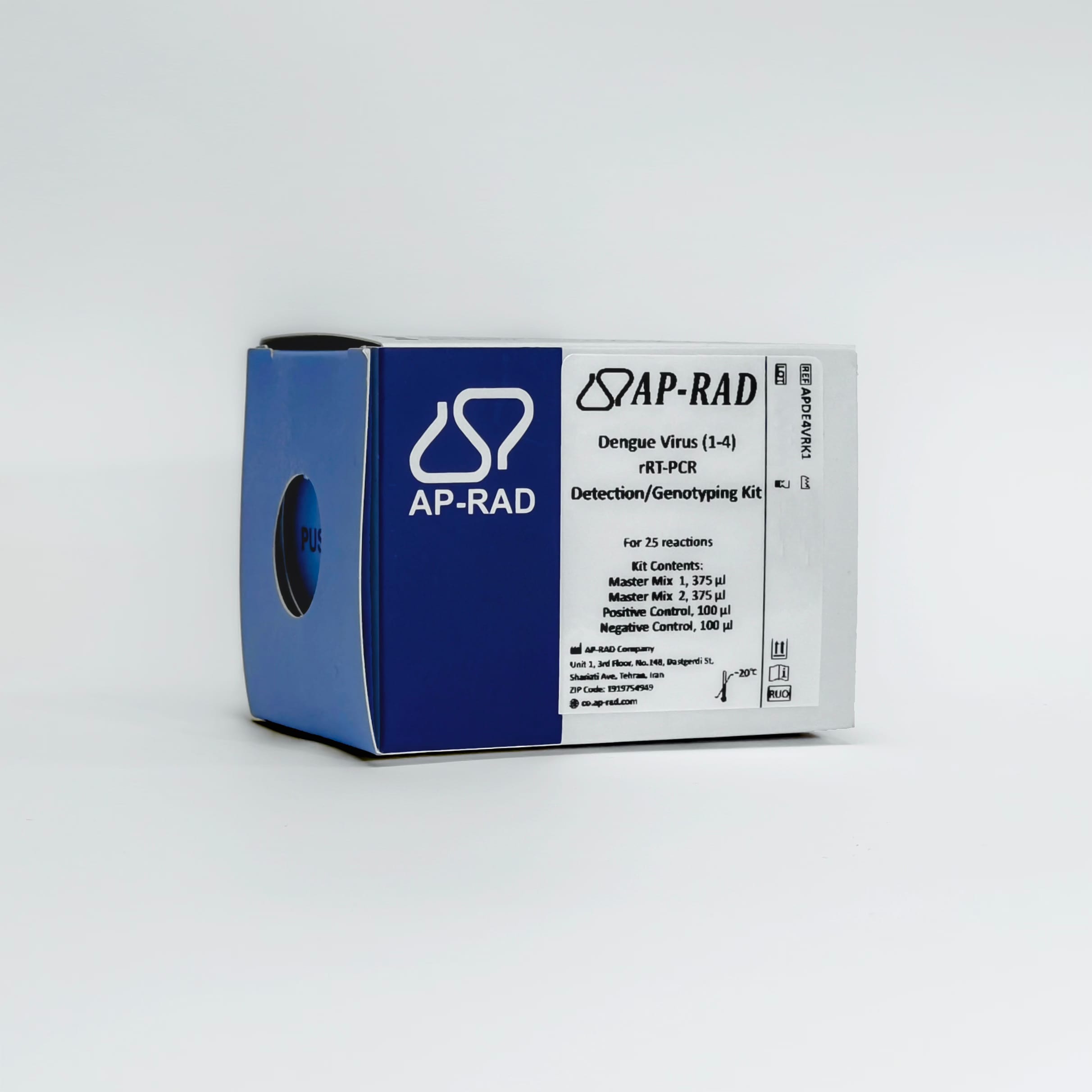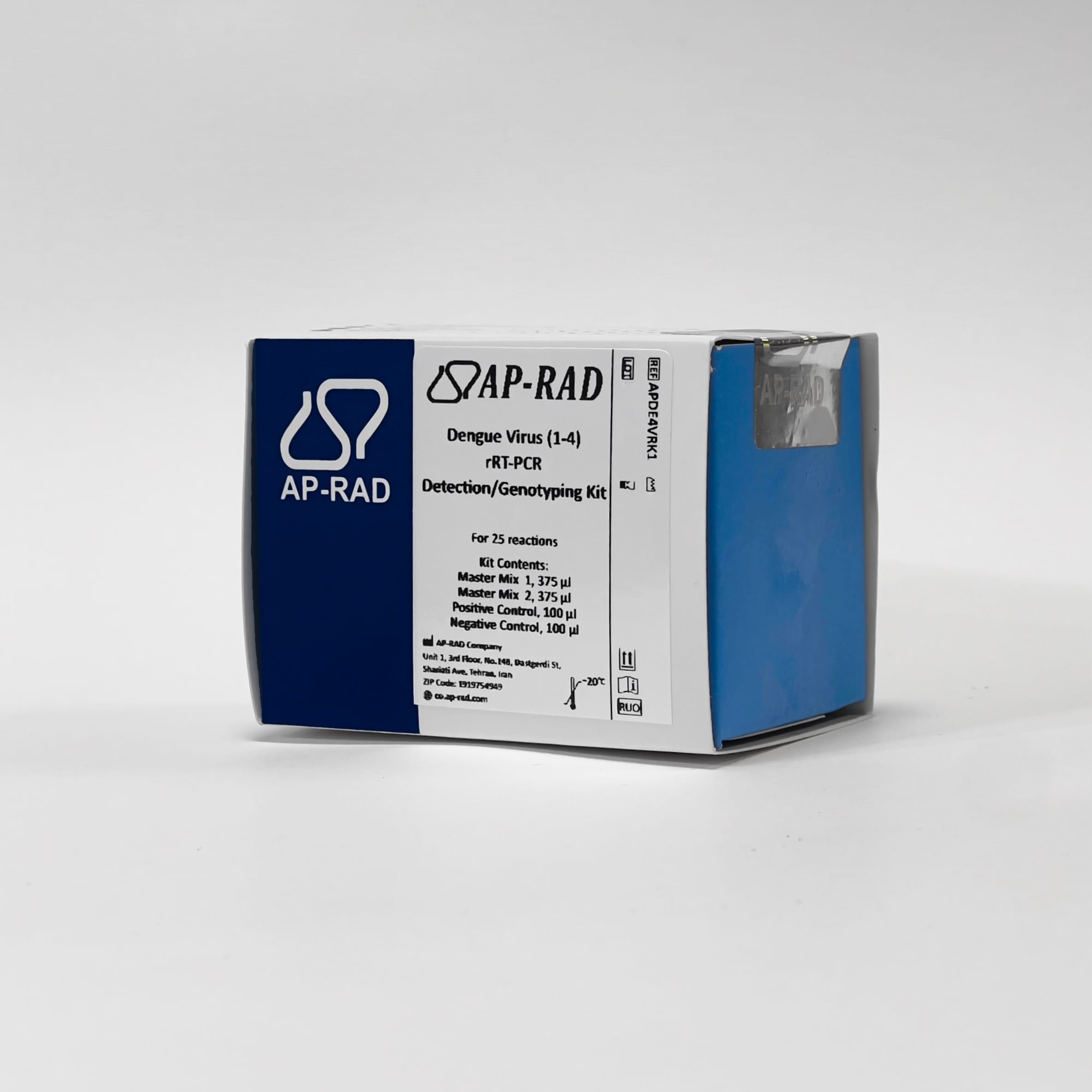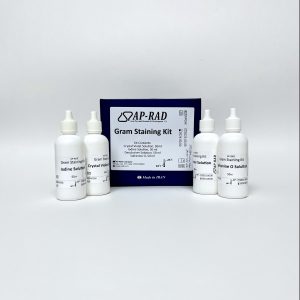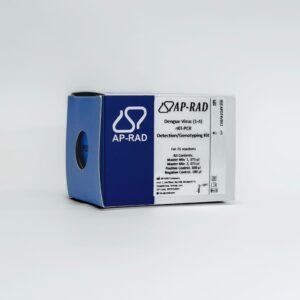Description
(AmirPayvand Research & Development Company) AP-RAD Dengue Virus (1-4) rRT-PCR Detection/Genotyping Kit is designed to detect all four serotypes of DENV simultaneously using one step, Real-Time RT-PCR technique, contributing to public health enhancement by accelerating dengue fever diagnosis and treatment.
Dengue fever is one of the most important arthropod-borne viral diseases with half of the global population at risk, currently estimated at 100 to 400 million cases reported annually worldwide. The disease is caused by infection of any of four dengue virus serotypes (DENV1-4) circulating in tropical and subtropical regions (mainly in urban and semi-urban areas) in the world. Dengue viruses (DENVs) are single-stranded RNA viruses of the family Flaviviridae and mainly spread to people through infected Aedes aegypti or Aedes albopictus mosquitos’ bites. Infected pregnant mothers can transmit the virus to their fetus during pregnancy or around the time of birth.
In rare events, dengue fever can be transmitted during blood transfusion, needle stick injuries, and organ transplantation. Although infection with one serotype confers lifelong protection against that serotype, it does not necessarily protect against a secondary infection with a heterologous serotype. Indeed, nonprotective but cross-reactive antibodies may enhance disease severity. Although most individuals with DENV are asymptomatic, when symptoms do occur, they commonly include fever, headache, musculoskeletal pain, chills, pain behind the eyes (posteriorly eye pain), nausea, vomiting, and skin rash which typically resolve within 1 to 2 weeks. Some warning signs of the disease (requiring immediate medical attention) include; abdominal pain, nose or gum bleeding, restlessness, and fatigue. Occasionally, the infection can progress to severe dengue, followed by shock, severe bleeding, and vital organ (heart, liver, brain) impairment, leading to death.
The disease is usually self-limiting, and its mortality rate is less than 1%. However, this number can be increased to 15% in severe untreated cases. The early diagnosis of dengue fever executed using reverse transcription polymerase chain reaction (RT–PCR), through the viral genome detection during the acute phase of the disease (5-7 days from the onset of the symptoms) facilitates effective treatment.




